Following Israel's elections, Josef Olmert, former Israeli peace negotiator and advisor to Yitzhak Shamir, discusses the role of Israeli-Arabs, right and left wing parties, Netanyahu, and Yair Lapid. It is arguably the case that Israeli politics, including Israeli parliamentary elections, arouse world-wide interest and gets much greater press coverage than that given to elections in far larger states. It may be because, as many Israelis believe, that ‘’Jews are news’’, or Israel being the Holy Land, its centrality in Middle East politics, always a region producing international interest and concern, or any other reason. Israel's Complex Political System Still, the curiosity does not necessarily mean a better understanding of the complexities of the Israeli political system, nor of the political forces which shape it up; definitely not of the main motivations which lead Israelis to vote the way they do. If I needed a reminder for this state of affairs, it came in a big way with the coverage of the most recent elections, which, in the best or worst Israeli tradition led to a confusing result. Some clarifications are in place here, with the aim to put it all in a proper and realistic context. To start with, the Israeli political map consists of many parties, too many for such a small country, but this is a good reflection of the ethnic, religious, and cultural diversity of the state. It may be that a threshold of 5% or 10% of the votes as the minimum required for inclusion in the Knesset, rather than the current one of 2%, would have dramatically reduced the number of parties. But it also would have dealt a mortal blow to any claim for a truly representative democracy, as it would deprive the Arab minority from representation, and significantly reduce that of Jewish religious parties. These are two important constituent groups in Israeli society. True democracy protects the rights of minorities; first and foremost, their right of being included in the political process. Israeli-Arabs in Israel's Body Politic Israeli-Arabs have many grievances about their situation in Israel, their state which is in a conflict with their people. Thus, it is extremely counterproductive as well as immoral to make it virtually impossible for them to be included in the democratic process. That said, it is also the case that there is a lot to be done in order for Arabs to be full-fledged members of the body politic. Most of the Arab parliamentarians take a very militant pro-Palestinian position, and that is not so popular, as can be imagined, in Israel. Their almost exclusive preoccupation with national Palestinian issues comes at the expense of dealing with the bread and butter issues of their constituents. Consequently, many Israeli-Arabs, while wholeheartedly supporting the Palestinian national cause, feel disenfranchised with regard to their everyday life. The inevitable result is a growing indifference towards the democratic process, very low election turnout, and underrepresentation in the Knesset. Jewish Zionist parties could and should do more in order to enter into the vacuum left by the Arab parties. By and large, they suffice themselves with paying lip service to Arab grievances but they are definitely falling short of taking the proper action. In the overall configuration of Israeli politics, the 10-12 elected Arabs MKs are automatically members of any anti-right-wing coalition. But in the past, even left-wing parties were reluctant to include them in Israeli governments. As one of the typical paradoxes of Israeli politics, it was Prime Minister Ehud Olmert, a former Likud leader, who appointed an Israeli-Arab, Raleb Majadele, for the first and last time in the 64 years history of the state, to be a minister in his cabinet. On a lighter note, it is a common saying in Israel that Arabs could not be members of the government, as they might be exposed to state secrets: those who know the workings of Israeli governments, know that the prime minister usually does not share "real" secrets with any of his Jewish ministers either. Lighter comment notwithstanding, altogether the situation of Arabs in Israel bodes ill to Israeli democracy. Israelis of all political stripes should be aware of that. Evolution in the Religious Camp Referring to another minority group in Israeli society, Orthodox Jews, we basically touch upon the question of synagogue and politics in a Jewish state. It is a debate that tears apart the Jewish nation from time immemorial. This debate has also not been resolved in the modern state of Israel, hence the existence of religious parties is an inevitable result of the need felt by many religious Jews to defend their interests by being active players in the political game. Indeed, we have three religious parties, which are highly factionalized, as well as three Arab parties, equally plagued with factionalism. The religious parties were in the past the most loyal partners of the Labor Movement when it dominated Israeli politics in the early years of the state. The Six-Day War in June 1967, brought a change which culminated in Likud's first historic election victory in 1977, to a large extent achieved by the near complete move of the religious vote to the right-wing column. This move proved to be irreversible, as well as politically decisive, because the religious voters and parties represent about 30% of the Jewish electorate. The voting pattern of the religious electorate reflects a profound development taking place in the Orthodox community as a result of the 1967 war. It can be summarized as the adoption of a messianic approach to the role of the State of Israel in Jewish history; more concretely, the belief that the territories of Judea and Samaria should never be handed over again to non-Jewish control, as they constitute the core of the Land of Israel. Clearly, this ideology is close to that of secular nationalists, mainly the Likud party, and thus, the Likud-Religious coalition is a foregone conclusion. The current Knesset will not be an exception, and with it, the inevitable drag on Israel's foreign policy, particularly with regard to the Palestinian issue. Right-Wing or Left-Wing in Israel In the international community, as well as in Israel, Likud is considered a right-wing party, but this definition requires some clarification and refreshing. The main bloc of voters which supports Likud, alongside religious voters, are blue-collar, working class people, mostly of Sephardic (Jews from Muslim/Arab states) origin. Likud controls many important unions, and traditionally advocated and initiated elements of the welfare state in Israel. In fact, when dealing with the economy, Likud historically was much closer to European Social Democracy than to American Conservatism. Netanyahu, particularly in recent years, both as finance minister and as prime minister, has pushed Likud towards an unabashed capitalistic direction, and in the process subjected himself to much criticism from the populist wing of his party, including during the last campaign. His most popular minister, Moshe Kachlon, the leading figure of populist Likudniks, resigned in protest and refused to participate in the campaign. What categorizes Likud as right-wing is its nationalist ideology, its closeness to religious traditions, and its hawkish policies with regard to the Palestinian question. The simplest division of Israeli politics between right and left is along those lines, but even that is somewhat misleading and superficial. When asked whether they prefer the two-state solution, or the annexation of the disputed territories by Israel, a plurality of the Israelis will answer in the affirmativeto the former. So is the left on top? Not really, because the same plurality also believes, according to all polls, that while the two-state solution may be the most desirable option, it is also highly unrealistic, and they blame the Palestinian side for this state of affairs, rather than Israel. So, is the right on top? In actual terms yes, because in the absence of a final settlement of the Israeli-Palestinian issue, whether along the lines of the two-state solution or any other, the status quo prevails, and this is the policy held and backed by Likud and its religious allies. This status quo policy was during the last campaign hardly challenged by parties to the Center and left of Likud. The events of the so-called ‘’Arab Spring’’, particularly the rise of the Muslim Brotherhood in Egypt and the atrocious bloodshed in Syria, weighed heavily with the voters. The Palestinian question, as focal as it is, was deemed irrelevant. With that in mind, the conservative, capitalistic and anti-religious Yair Lapid, a newcomer, had his day. Yes, he wants the two-state solution, he wants negotiations with the Palestinians, but he also wants structural economic changes in line with his extreme free market ideology. Netanyahu will be just happy to accommodate Lapid on those issues; perhaps, to an extent, also support some reduction in the power of the religious establishment. However, he will stand on his rear feet when it comes to the Palestinian question, and Lapid will swallow some bitter pills, though grudgingly, and will acquiesce . But this is politics, the art of the possible, Israeli style. The views expressed in this article are the author's own and do not necessarily reflect Fair Observer’s editorial policy.
Image: Copyright © Shutterstock. All Rights Reserved
Support Fair Observer
We rely on your support for our independence, diversity and quality.
For more than 10 years, Fair Observer has been free, fair and independent. No billionaire owns us, no advertisers control us. We are a reader-supported nonprofit. Unlike many other publications, we keep our content free for readers regardless of where they live or whether they can afford to pay. We have no paywalls and no ads.
In the post-truth era of fake news, echo chambers and filter bubbles, we publish a plurality of perspectives from around the world. Anyone can publish with us, but everyone goes through a rigorous editorial process. So, you get fact-checked, well-reasoned content instead of noise.
We publish 2,500+ voices from 90+ countries. We also conduct education and training programs
on subjects ranging from digital media and journalism to writing and critical thinking. This
doesn’t come cheap. Servers, editors, trainers and web developers cost
money.
Please consider supporting us on a regular basis as a recurring donor or a
sustaining member.
Will you support FO’s journalism?
We rely on your support for our independence, diversity and quality.



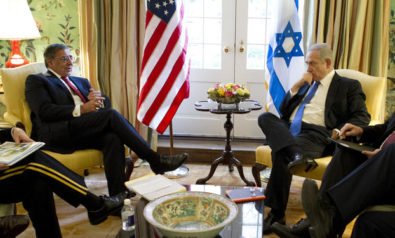


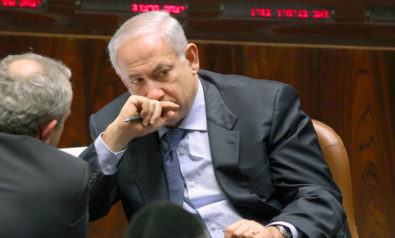
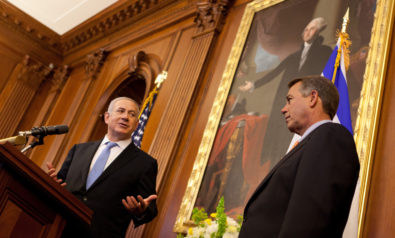
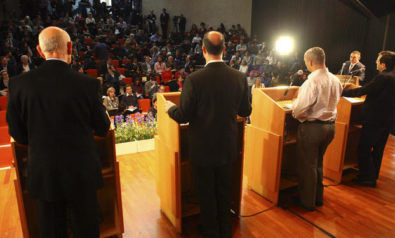
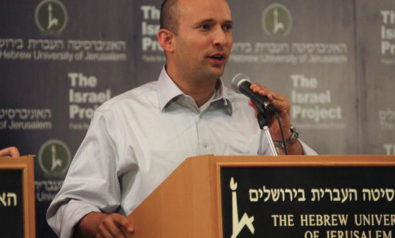
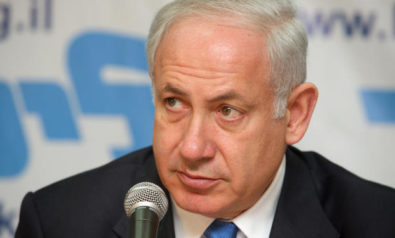

Comment